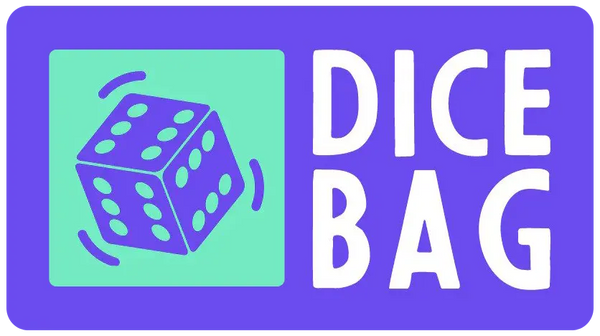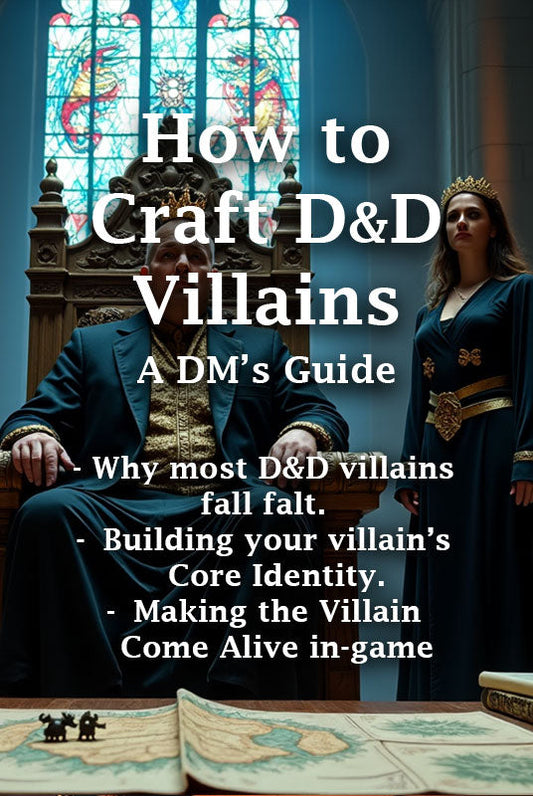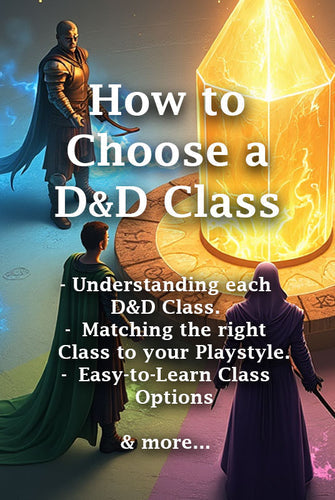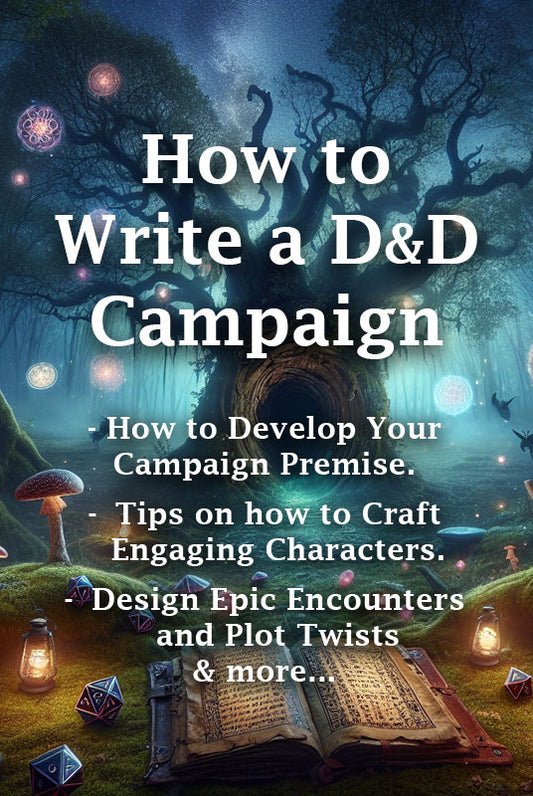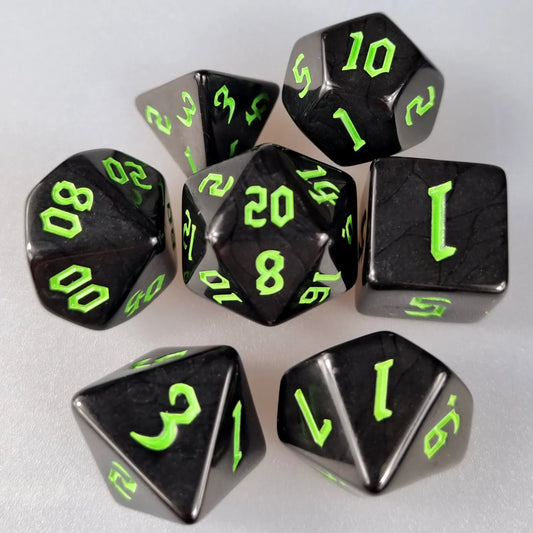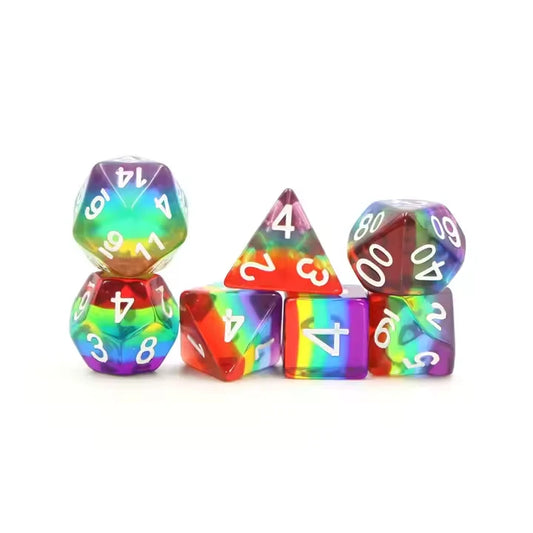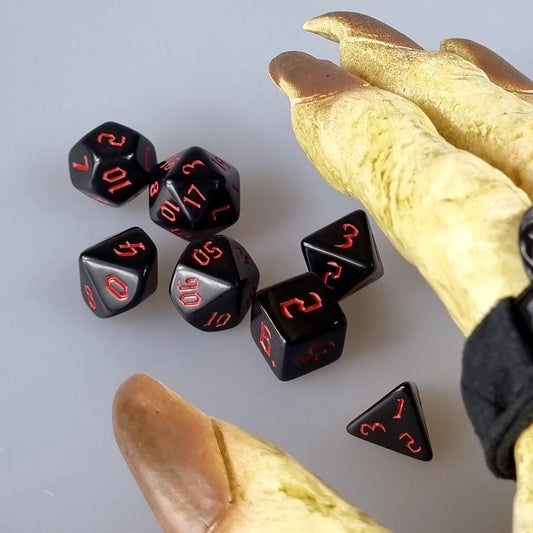
Many wonder, "Can you play D&D by yourself?" Yes, you can, and we're diving into how to harness the magic of solo D&D play. Whether you're craving the role of a Dungeon Master or a solitary adventurer, solo play offers complete control over your fantasy journey, using a blend of online tools, dice rolling, and imaginative scenarios. We'll explore how charts, random rolls, and various tools can craft encounters, quests, NPCs, and intricate relationships between characters, ensuring a vibrant world at your fingertips.
Embarking on a solo D&D quest does not mean compromising on the thrill of exploration or the depth of narrative. By playing alone, you maintain the essence of D&D while configuring adventures tailored to your vision. The route to playing solo wraps you in an immersive experience with solo play resources that guide character creation, combat, and even adventure selection, offering a unique blend of independence and engagement in the realm of solo D&D.
The Appeal of Solo D&D Play
Playing D&D alone opens up a realm of possibilities that cater to a variety of player preferences and circumstances. Here are some key reasons and benefits of solo D&D play:
- Flexibility and Convenience:
- Play anytime, fitting sessions around your schedule.
- No need to coordinate with others, making it easier to start playing.
- Personalised and Deep Gameplay:
- Tailor adventures to your character's story, ensuring a unique experience.
- Deep character development through focussed growth and decision-making.
- A more personal and introspective journey, allowing for a focussed storyline.
- Skill Development and Experimentation:
- Provides a platform for practising DND skills and experimenting with different scenarios.
- Opportunity to test new ideas and character concepts before group play.
Despite these advantages, it's important to acknowledge potential challenges such as limited social interaction and the need for self-motivation. However, the unique blend of flexibility, personalised storytelling, and skill development makes solo D&D a rewarding endeavour for many.
Tools and Resources for Solo D&D
Exploring the vast array of tools and resources available for solo D&D play can significantly enhance your gaming experience. Here's a breakdown of some essential tools to get you started:
- Gamebooks and Modules: Begin with solo-specific adventures like "The Saint's Tomb" on itch.io or "Death Knight's Squire" on DM's Guild. These adventures are designed for solo play, providing a structured narrative to follow.
- Digital Tools and Apps:
- DnD Beyond: Highly recommended for its accessibility and wealth of linked resources, making character creation and management seamless.
- Random Dungeon Generators: Apps like "Endless RPG" generate dungeons complete with encounters and treasures, perfect for spontaneous adventures.
- AI Dungeon Masters: Utilise new technology like ChatGPT or AI Dungeon 2 for dynamic storytelling and responsive gameplay. These AI systems can generate descriptions, tailor narratives, and engage in interactive conversations, though they may require clear prompts and can sometimes struggle with combat encounters.
- Supplementary Resources:
- Oracles and Emulators: Tools like the Mythic Game Master Emulator can simulate a DM's input, adding an element of surprise and randomness to your solo sessions.
- Podcasts and Guides: Listening to solo RPG podcasts such as "Me, Myself and Die" or consulting guides like "The Solo Adventurer's Toolbox" by Paul Bimler can offer valuable insights and inspiration for your solo journey.
By integrating these tools and resources, you can enjoy a rich, fulfilling D&D experience on your own terms.
Character Creation and Management
In the realm of solo D&D play, character creation and management are pivotal, offering a canvas for creativity and strategic planning. Here's how we can navigate this process effectively:
- Getting Started:
- Basic Understanding: Familiarise yourself with D&D rules and mechanics, accessible for free online, and have a set of dice or use online rolling options.
- Character Creation Tools: Utilise online tools for choosing race, class, and background, simplifying the character creation process.
- Character Complexity and Management:
- Starting Simple: Begin your adventure with one character for ease of management, gradually transitioning to a party with sidekicks as you gain experience.
- Sidekicks and NPCs: Incorporate sidekicks or lower-powered NPCs to complement your main character, using resources like 'The Solo Adventurer's Toolbox' for generating encounters.
- Character Development: Equip your character with magic items to offset gaps, and consider levelling up side characters alongside the main party to maintain balance.
- Advanced Tips:
- Experiment with Classes: Try various classes such as Paladin, Monk, or Hexblade Warlock, adding depth to solo play.
- The Troupe System: For managing multiple characters, explore systems like Ars Magica's Troupe System, ensuring game flow and balanced party composition.
By embracing these strategies, we ensure a rich and personalised solo D&D experience, blending creativity with strategic character management.
Combat and Encounter Management
In managing combat and encounters in solo D&D, we've honed strategies to keep gameplay both challenging and enjoyable. Here are some key approaches:
- Simplifying Exploration and Discovery:
- Treat secret doors as generally discovered with proficiency in Thieves Tools and a decent passive perception score, streamlining exploration.
- Employ the 'right hand rule' for dungeon navigation or stick to the encounter order outlined in adventure books, ensuring a structured progression.
- Dice Rolling and Encounter Balancing:
- Favour physical dice for their tangible excitement and randomness in outcomes.
- Adjust encounters by reducing the number of monsters, their hit points, and attacks. This includes removing legendary actions for a fair challenge.
- Mitigate overwhelming scenarios by running larger battles ‘off-screen’, focusing on smaller, manageable skirmishes.
- Combat Dynamics for Solo Play:
- Carefully balance the challenge rating (CR) considering the solo character's capabilities, magic items, and special features for a rewarding experience.
- Incorporate dynamic environments and encourage creative tactics, enhancing the excitement and unpredictability of solo battles.
These strategies ensure combat and encounters in solo D&D remain balanced, engaging, and true to the spirit of adventure.
Adventure Selection and Modification
Selecting the right adventure is crucial for a fulfilling solo D&D experience. We've found that modules with a more straightforward, linear storyline, such as "Tyranny of Dragons" are generally more suitable for solo play. This contrasts with open-world, sandbox-style adventures like "Curse of Strahd" which might present more challenges when playing alone due to their open-ended nature.
As the Dungeon Master (DM) for your solo adventure, preparing your narrative is key:
- Adventure Creation: You'll need to craft an adventure, including a captivating setting, an engaging story, and dynamic non-player characters (NPCs).
- Comprehensive Preparation: It's beneficial to read through your chosen adventure in its entirety before beginning. This preparation allows you to familiarise yourself with the storyline and mechanics, ensuring a smoother solo play experience.
Personal touches enhance solo play:
- Maintaining a campaign log and incorporating Sidekicks can add depth and variety to your adventure. Reflecting on personal experiences, the joy and growth stemming from solo play are evident, underscoring the value of customised adventures and character development. Remember, this is a journey shaped by individual preferences and experiences, not a one-size-fits-all guide.
The Challenges and Rewards of Solo D&D
Embarking on solo D&D adventures introduces a unique set of challenges and rewards, shaping a distinct gaming experience. Here, we dissect these aspects to provide a clearer view:
Challenges:
- Limited Social Interaction: The absence of a group means missing out on shared storytelling and dynamic interactions, which are core to the traditional D&D experience.
- Balancing Dual Roles: Players must juggle the responsibilities of both the Dungeon Master and the player, which can be a steep learning curve.
- Overcoming Solo Play Limitations: Adapting to playing without the feedback and ideas from a group requires creativity and self-motivation.
Rewards:
- Enhanced Game Mechanics Understanding: Solo play deepens knowledge of D&D rules, making players more adept at navigating and leveraging game mechanics.
- Boosted Creativity and Problem-Solving: The necessity to think outside the box and solve problems independently enhances creativity.
- Journaling for Richer Storytelling: Keeping a campaign log not only helps track the narrative and enemy motives but also enriches the storytelling experience.
Solo D&D play, while presenting hurdles such as limited social interaction and the need for dual role management, also offers substantial benefits. It fosters a deeper understanding of game mechanics, enhances creativity, and encourages detailed storytelling through journaling. These rewards make the solo D&D journey a fulfilling and enriching experience.
Conclusion
Throughout this exploration of solo D&D play, we've navigated the multifaceted landscape of playing Dungeons & Dragons by oneself, highlighting the significance of flexibility, personalised storytelling, and an enhanced grasp of game mechanics. The journey into the realm of solo D&D play unveils a treasure trove of resources, strategies, and innovative tools that together forge a deeply rewarding and immersive experience, tailored to the individual's creative vision and gameplay preferences. The synthesis of character creation, adventure crafting, and combat management articulates the profound potential for growth, creativity, and enjoyment inherent in solo play.
As we conclude, it's clear that solo D&D play stands not only as a viable alternative to traditional group play but also as a rich, expansive world brimming with opportunities for personal development and unique adventure. The challenges and rewards outlined offer a holistic view of the solo D&D experience, underscoring its value in enhancing one’s mastery of the game while fostering a deeply personal and introspective journey. Whether you're delving into solo play out of necessity or curiosity, the paths carved by solo adventurers before you provide a foundation for endless adventure, discovery, and self-discovery.
FAQs
Can I enjoy Dungeons & Dragons on my own?
Absolutely! Playing D&D solo is entirely possible and provides a different yet captivating experience. It allows you to dive deep into your imagination, enhance your creative problem-solving skills, and develop your abilities as both a player and a storyteller.
Is a Dungeon Master necessary for playing D&D?
No, you can play D&D without a Dungeon Master, but you'll need to make some significant changes to the game. The Dungeon Master typically plays a crucial role in the game, but there are ways to adapt the experience for solo play.
What are the methods for playing D&D solo?
There are three primary methods for playing D&D on your own:
- Utilise a module specifically designed for solo play, often referred to as gamebooks.
- Employ an oracle system to help guide your decisions and outcomes.
- Combine an oracle with a published adventure intended for a full party to simulate a more traditional D&D experience.
Can Dungeons & Dragons be played with just one player and one Dungeon Master?
Yes, D&D can be played with just one player and one DM, and it can be just as enjoyable as playing with a larger group. This setup can offer many benefits that you might not get from a game with more players, and any initial awkwardness will likely fade as you get into the game.
